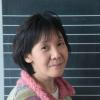"Listening" occupies a special place in Japanese cultures. Indications abound in literature, folklore, and everyday practices that listening has been nurtured as a multisensory experience and that it encompasses a wide range of phenomena. Whether it be in the haiku poetry reading, religious ceremony, political protest, or mundane activity, listening enables people to transcend spatiotemporal boundaries, connect with the intangible and the invisible, and engage in the world and life in a deeper philosophical consciousness. This course explores Japanese sound cultures, with special attention to the underlying unique conceptions of "listening": how have people in Japan cultivated distinct sensibilities in listening, and how, in turn, such sensibilities have constituted Japanese sound cultures. Course materials (readings and case studies for analysis) are drawn from diverse sources across different art forms and history, e.g., literature, architecture, theater, film, martial arts, contemporary popular culture media, as well as quotidian sound-making and listening activities. No previous training in music is necessary to take this course, but the required coursework includes weekly listening exercises, various analysis assignments, occasional virtual hands-on and group activities. Through these exercises, selected readings, and class discussion, students are invited to open their ears, senses, and minds to unique cultural values, sensibilities, and practices of listening in Japanese sound cultures and rigorously question their own practice and conception of "listening." Keywords:Japan, listening, sounds, sensibilities


